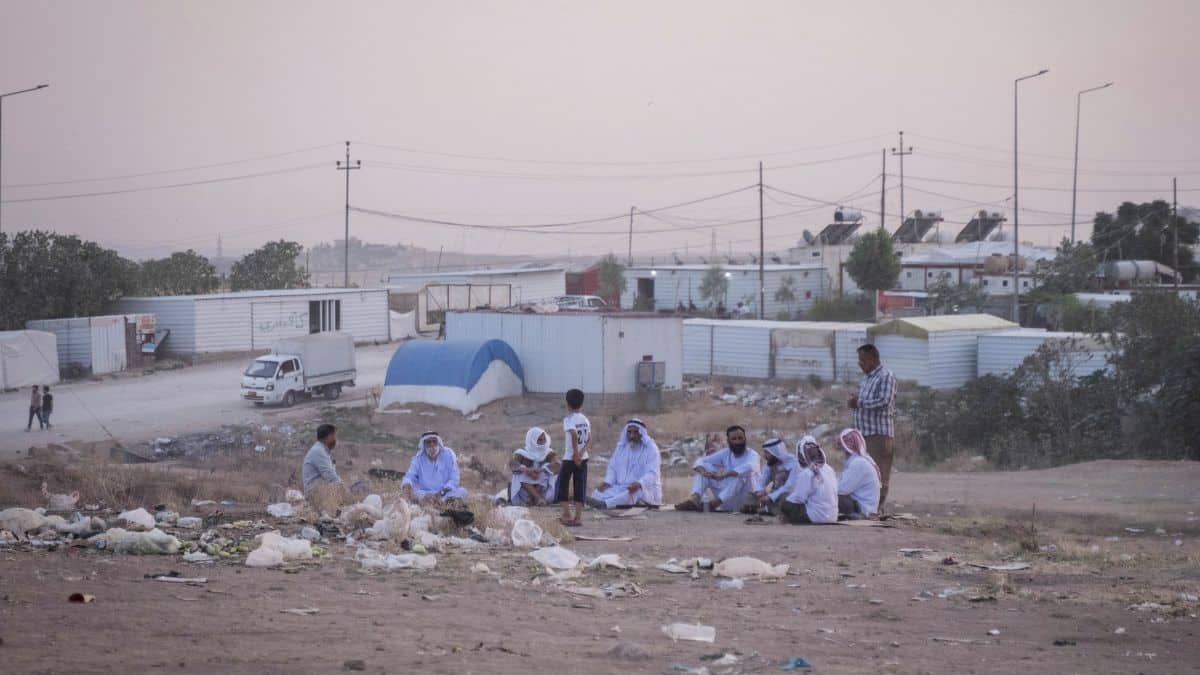On the 10th anniversary of Daesh’s occupation of Sinjar, Iraqis displaced by the terrorist group face a new threat from the PKK, which now occupies Sinjar and obstructs the return of displaced families. Even though Daesh has been defeated, around 150,000 families are still unable to return home, primarily because of the PKK’s occupation of Sinjar. This group has been responsible for thousands of deaths in Turkey over the past decades.
In 2014, Daesh seized several cities and towns in northern Iraq, including al-Anbar, Diyala, Mosul, Kirkuk, and Salahaddin, causing mass displacement. Though many internally displaced people (IDP) camps were established and later closed as families returned, significant numbers remain displaced.
Ali Abbas, spokesperson for Iraq’s migration ministry, told Anadolu Agency (AA) that 900,000 families were displaced due to Daesh attacks, with 600,000 families having returned. At present, between 120,000 and 150,000 people are still classified as internally displaced persons (IDPs). Abbas noted that 153 out of 175 camps have been shut down, but 27,000 families still reside in the camps, including 22,000 from Sinjar.
Sharif Suleiman, a member of the Iraqi Parliamentary Committee on Migration, stated that the return of IDPs was part of a political deal during the formation of the Iraqi government. He emphasized the importance of ensuring IDPs’ return for both the Kurdistan Regional Government (KRG) and Iraq. However, he acknowledged the challenges and inappropriate conditions for their return, with political tensions and rivalries in Sinjar being significant obstacles.
The Sinjar Agreement, signed in 2020 between the KRG and the Iraqi government to remove the PKK from Sinjar, has not been implemented. Suleiman highlighted that 90% of the displaced have homes that are currently uninhabitable and stressed the need for improved security in the region.
The PKK initially entered Sinjar in 2014, claiming to protect the Yazidi community from Daesh. However, they have been accused of blocking aid to Yazidis and preventing their return to the region. Hundreds of thousands of Yazidis have been living in harsh conditions in northern Iraq camps since the Daesh attack in 2014, which killed over 1,200 people and led to the abduction of 6,400 Yazidis. The UK recently recognized the mass killings of Yazidis as genocide. Despite the Iraqi Ministry of Migration and Displacement’s plans to close IDP camps by July 30, the PKK’s presence in Sinjar forces Yazidis to remain in difficult conditions.

